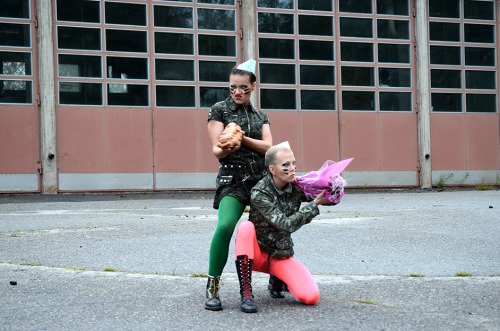Audra Mitchell
Audra Mitchell holds the CIGI Chair in Global Governance and Ethics at the Balsillie School of International Affairs at Wilfrid Laurier University, Canada. She has published widely on the topics of global-scale harm, ethics, violence, global political ecology and extinction.
She is one of the founding members of the ‘Creatures Collective’, an Indigenous/Non-Indigenous, interdisciplinary research collective committed to re-thinking and refusing global patterns of extinction and other ecological harms. Its members and partners work in Canada, the USA, Australia, the Philippines, Madagascar and Malaysia.
Personal website (blog) here and institutional here.
Twitter: @AudraLMitchell
Tere Vadén
Tere Vadén is a philosopher living in Tampere, Finland. He has been interested in the local and linguistic conditions of thinking and views on nature, and how various art-forms including painting and literature embody unique environmental processes. To this end, he has also interpreted the epistemology of Finnish oral tradition and the contributions that indigenous epistemologies may have on necessary environmental revolutions, and analysed the respective shortcomings of European revolutionary ideals (Heidegger, Zizek and Revolution, Sense 2014). Recently he has been obsessed with the question of energy, especially fossil fuels, and their impact on the experience of modernity, publishing with Antti Salminen the book Energy and Experience. An Essay in Nafthology (MCM, 2015).
Find Vadén's blog here.
Hospitality Army
Hospitality Army is the community art project of two artists from Lapland, Ninni Korkalo and Anne Niskala, and their team. Their aim is to defend community from the internal and outer menaces that are connected to the weathering of the culture of hospitality and the fear of the foreign and alien.
Hospitality Army will provide us with a "Hospitality Training" -session.

Picture: Gaia Rodriques & Hospitality Army
The Peaceful Coexistence committee
The Colloquium committee consists of scholars from fields such as organization studies, law, tourism and international relations. They will hold a collective and participatory keynote to conclude the Colloquium.